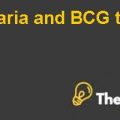
Tokyo Jane, a fashion jewelry company headquartered in Copenhagen, Denmark, manufactures and launches its products as “luxury for less” that includes importing, designing, and selling fashion jewelry pieces that look luxurious and cost less than the high-priced products. It has around 400 partners in the retail chain, including small fashion boutiques, big department stores and online retail channels. The company’s operations are mainly located in China from where the products are air-shipped to the company’s headquarters, stocked in the head office and delivered to retailers who then sell to end-consumers in various markets, including Canada, U.K., Europe, and Scandinavia. In 2005, it was founded by two partners, the current issues faced by the partners include the lack of an effective brand definition to expedite the company’s growth, demands of large manpower due to the current situation as it only have three permanent employees and a revolving number of interns, and it is also required to consider the current management and operations of distribution as the company is expanding its business quickly. On April 2013, they faced a complaint about the product quality from a key customer. How could they ensure not only the sustainability of their firm but also the growth of the business?













